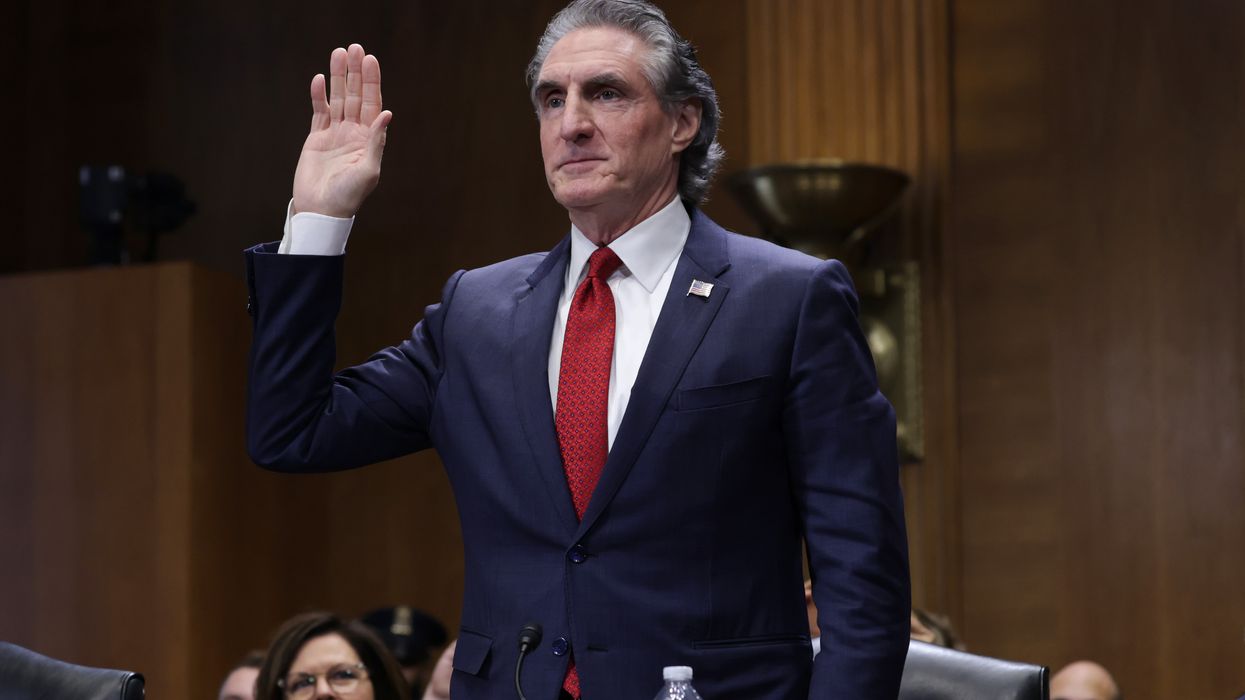During his confirmation hearing, Burgum told senators that the U.S. can use energy development as a way to promote peace and to lower consumer costs, and also raised concerns about the reliability of renewable energy sources promoted during the Biden administration, according to CBS News.
Burgum sailed through his confirmation process, securing his position atop the agency with a vote of 79-18.
The 18 senators who did not vote for him were: Lisa Blunt Rochester (D-Del.), Chris Coons (D-Del.), Tammy Duckworth (D-Ill.), Mazie Hirono (D-Hawaii), Andy Kim (D-N.J.), Ed Markey (D-Mass.), Jeff Merkley (D-Ore.), Chris Murphy (D-Conn.), Patty Murray (D-Wash.), Alex Padilla (D-Calif.), Gary Peters (D-Mich.), Jack Reed (D-R.I.), Bernie Sanders (I-Vt.), Adam Schiff (D-Calif.), Chuck Schumer (D-N.Y.), Chris Van Hollen (D-Md.), Elizabeth Warren (D-Mass.), and Ron Wyden (D-Ore.).
Sens. Cory Booker (D-N.J.), John Fetterman (D-Pa.), and Jon Ossoff (D-Ga.) were absent.
Mike Sommers, president and CEO of the American Petroleum Institute, a trade associate and lobbying firm for the U.S. oil industry, expressed enthusiasm about Burgum's confirmation, according to The Washington Post.
"Doug Burgum has long been a champion for American energy leadership," Sommers said in a statement to the Post. "We look forward to working with him to implement a pro-American energy approach to federal leasing, starting with removing barriers to development on federal lands and waters and developing a new five-year offshore program."
Meanwhile, environmental groups blasted the Senate's confirmation of Burgum.
"Doug Burgum will just be another rubber stamp for Trump's reckless energy agenda. That isn't the leadership our public lands need," said Kristen Miller, executive director of Alaska Wilderness League, in a statement Friday. "Burgum's loyalty to Trump ignores both the economic realities and the climate crisis we're facing today, especially in Alaska."
The youth climate organization Sunrise Movement called Burgum's confirmation "a win for Big Oil billionaires" and pointed to Burgum's reported role in planning a meeting between Trump and energy executives in spring 2024, during which Trump suggested that they raise $1 billion for his campaign in exchange for tax breaks and large-scale deregulation.
"From opening more public lands for extraction to attacking countless protections of lands, water, and wildlife, it's clear that President Trump is committed to expanding fossil fuels and catering to industry at the expense of our climate, public lands and waters, and wildlife," according to a Wednesday letter sent to the Senate from over 30 environmental, watchdog, and public interest groups. "Doug Burgum will be charged with carrying out this unpopular and dangerous agenda."




